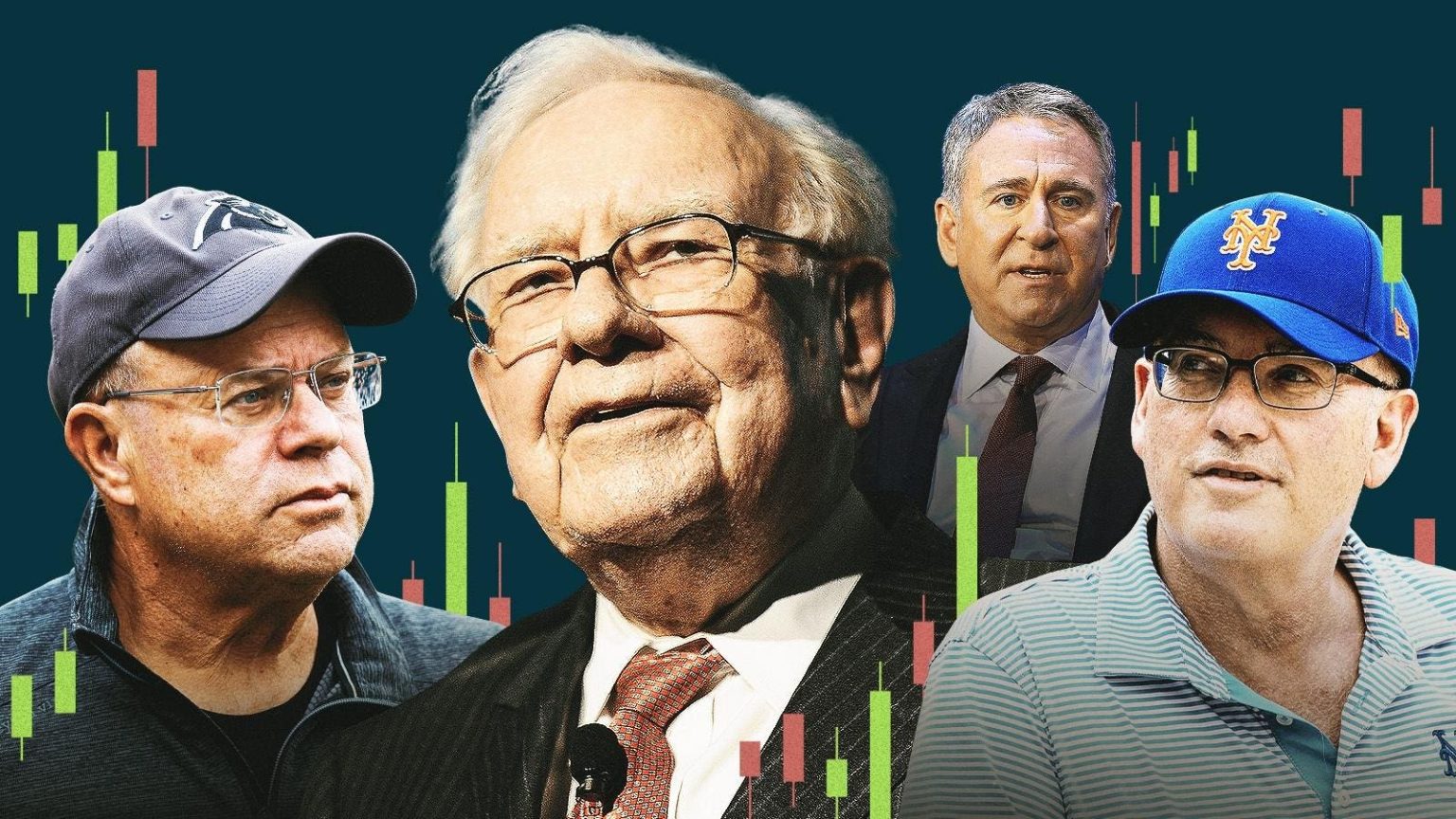Warren Buffett, Ken Griffin, and Other Billionaires Reshuffle Portfolios, SEC Filings Reveal
The latest round of 13F filings, which offer a glimpse into the holdings of prominent investment managers, has revealed intriguing shifts in the portfolios of some of the world’s wealthiest investors. These filings, though delayed by 45 days, provide valuable insights into the investment strategies of these financial giants, offering clues for individual investors seeking to identify emerging trends and areas of consensus. While the time lag means the reported positions may not reflect current holdings, particularly for high-frequency traders, they nonetheless offer a window into the longer-term investment philosophies of prominent figures like Warren Buffett and David Tepper.
Warren Buffett’s Berkshire Hathaway, for instance, has taken a notable stake in Domino’s Pizza, signaling confidence in the pizza chain’s long-term prospects. This move aligns with Buffett’s value-oriented approach, seeking companies with strong fundamentals and long-term growth potential. The filings also reveal Berkshire’s continued reduction of holdings in Apple and Bank of America, despite these remaining among its largest positions. Interestingly, Berkshire also initiated a new position in aerospace and defense supplier Heico, joining a roster of other billionaire investors in the company. This diversification into a specialized industrial sector suggests Berkshire’s ongoing search for undervalued opportunities outside its core holdings.
Meanwhile, Ken Griffin’s Citadel Advisors has been strategically trimming its exposure to the tech sector, reducing its holdings in Amazon and Microsoft, while boosting its investment in Australian software company Atlassian. This move may reflect a belief in Atlassian’s growth potential within the enterprise software market, while simultaneously taking profits from the recent tech rally. Citadel also increased its position in Medtronic, a leading medical device manufacturer, indicating a potential interest in the healthcare sector. These adjustments suggest a dynamic approach to portfolio management, capitalizing on market fluctuations and seeking value in diverse sectors.
Jeffrey Yass’s Susquehanna International Group, another significant player in the financial world, has also been actively managing its portfolio. The firm substantially reduced its Apple holdings while simultaneously increasing its stake in Nvidia, a leader in the semiconductor industry. This shift highlights the evolving landscape of the tech sector, with Nvidia’s focus on artificial intelligence and high-performance computing gaining prominence. Susquehanna also trimmed its exposure to broad market ETFs, possibly indicating a cautious outlook on the overall market’s near-term trajectory.
Steven Cohen’s Point72 Asset Management has shown contrasting moves in the media sector, acquiring shares of Comcast while reducing its position in Fox. This suggests a nuanced view of the changing media landscape, potentially favoring Comcast’s diversified business model over Fox’s more focused approach. Point72 also reduced its holdings in Amazon and Broadcom, further reflecting a strategic shift in its technology investments. The firm’s increased investment in Taiwan Semiconductor, a crucial player in the semiconductor industry, underscores the ongoing importance of this sector in the global tech landscape.
David Tepper’s Appaloosa Management has taken a contrarian approach, increasing its exposure to Chinese companies like PDD Holdings and JD.com, despite geopolitical uncertainties. This move highlights the potential investment opportunities in emerging markets, even amid political and economic headwinds. Concurrently, Appaloosa has been reducing its exposure to several high-performing tech stocks, including Nvidia, Meta, Amazon, and Microsoft, potentially indicating a belief that these companies’ valuations may be stretched. These moves suggest a focus on value investing and a willingness to explore less conventional opportunities.
In summary, the latest 13F filings reveal a dynamic investment landscape, with prominent billionaires making strategic adjustments to their portfolios based on their individual assessments of market conditions and specific company prospects. These moves, while not necessarily indicative of short-term trading strategies, offer valuable insights into the long-term investment philosophies of some of the most successful investors in the world. By analyzing these filings, individual investors can gain a better understanding of the prevailing sentiment among large institutional investors and identify potential investment opportunities. While it’s important to remember that these filings are retrospective and subject to inherent delays, they nonetheless provide a valuable resource for those seeking to navigate the complexities of the financial markets.









